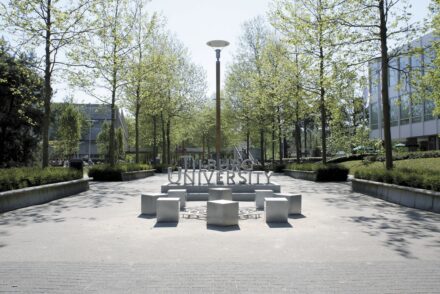Tilburg University Chooses to Take Control of Internationalization
Tilburg University supports the proposal by Universities of the Netherlands (UNL) to independently manage the influx of international students in a more balanced way. The university sees this plan as a workable alternative to the national ‘Balanced Internationalization Act,’ which would allow for far-reaching government control.

According to Tilburg University, the UNL proposal offers more room for tailored solutions. The university wants to decide for itself which measures are necessary to bring internationalization into balance. These self-imposed measures will only be implemented once it becomes clear that the so-called Foreign Language Education Test (TAO) will be abolished for existing programmes.
The Foreign Language Education Test is part of the ‘Balanced Internationalization Act’ (WIB), drafted by former Minister of Education Robbert Dijkgraaf. This language test would require every existing degree program to be assessed on whether it may be taught in a language other than Dutch.
Rector Magnificus Wim van de Donk: ‘If you apply this language test to our current bachelor’s programs, many would immediately be at risk. For Tilburg, this would be extremely disruptive. It would also result in massive administrative burdens and increased workload.’
Van de Donk explains that the proposal from Dutch universities has been carefully prepared in recent consultations. ‘We hope this will help us avoid major problems. It’s also a way to retain autonomy over internationalization and to prevent excessive government interference.’
Limiting Student Intake and Language Choices
What does this self-governance mean for Tilburg University? One of the planned measures is to cap the intake of international students in English-taught bachelor’s programs. For the next two academic years, a maximum will be set that is approximately equal to the intake for the 2024-2025 academic year.
In addition, structural changes to the programme offerings are being developed. A concrete proposal is on the table to offer the bachelor’s programme in Psychology primarily in Dutch from now on. Currently, the programme is bilingual, with a small track in Economic Psychology remaining in English.
By phasing out the English-language track, the university expects to reduce the number of incoming international students. The bachelor’s programs in Econometrics & Operations Research will also be offered solely in Dutch.
Concerns About National Legislation
With these measures, the university aims to prevent national politics from gaining too much control over educational offerings. Under the current WIB plans, the Minister of Education would have the authority to terminate English-taught programmes or intervene in language policy.
Nonetheless, the self-governance proposal is already painful, emphasizes Marc van Veldhoven, Dean of the Tilburg School of Social and Behavioral Sciences (TSB). ‘This remains difficult for all staff members who have worked passionately on the English-taught Psychology bachelor’s programs for years. But the alternative — the TAO — would be even worse.’
Switching the English-taught Psychology bachelor’s programs mostly to Dutch is, of course, a major blow to the School of Social Sciences. Van Veldhoven: ‘We are not making this painful decision just for ourselves as a faculty, but also to contribute to an alternative that benefits the entire university.’
Van de Donk also acknowledges the emotional weight of these decisions. ‘It hits us at our core.’
Prepared for Change
The self-governance proposal is now in the hands of the current Minister of Education, Eppo Bruins. Van de Donk hopes to receive a response within a few weeks. Although Tilburg’s proposed measures will only be implemented if the TAO is dropped, the university wants to be well-prepared.
Van de Donk: ‘Balancing internationalization is not a one-off effort. The desire for a stronger position for the Dutch language at universities has existed for some time and won’t disappear anytime soon. The way the WIB addresses this is simply far too drastic.’
The guiding principle is clear: internationalization remains important, but it must be balanced with the capacity of study programs and accessibility for Dutch students. Tilburg University wants to shape that balance on its own terms.






